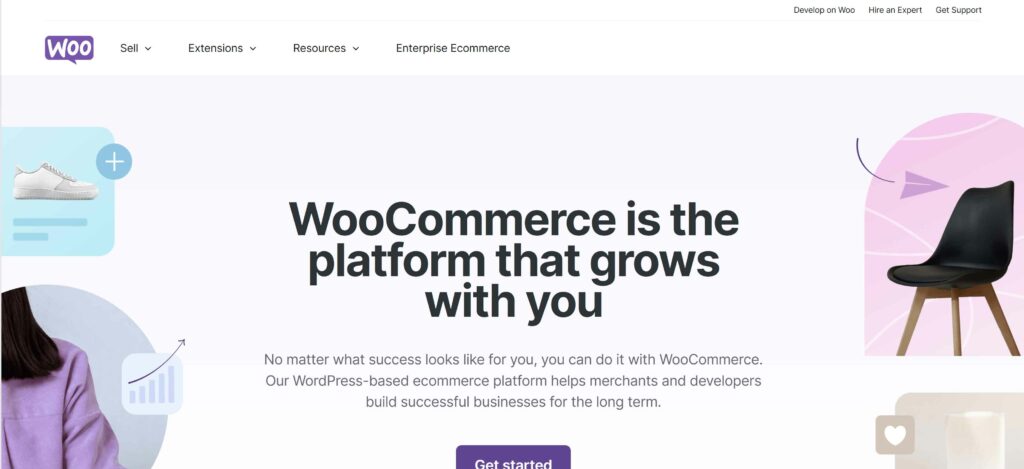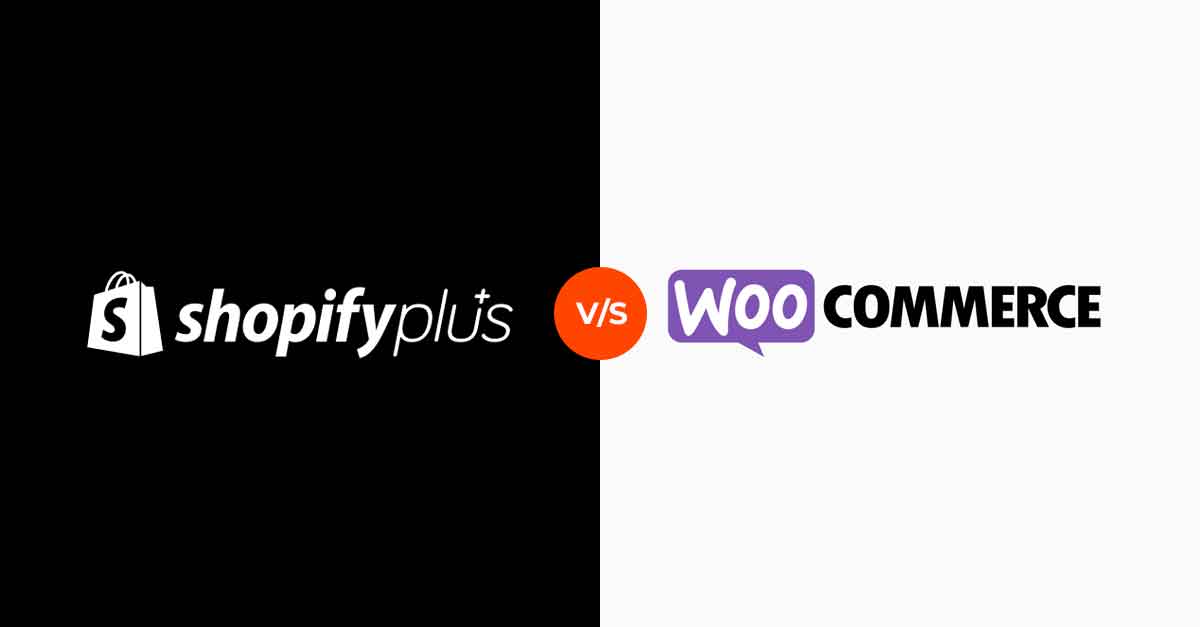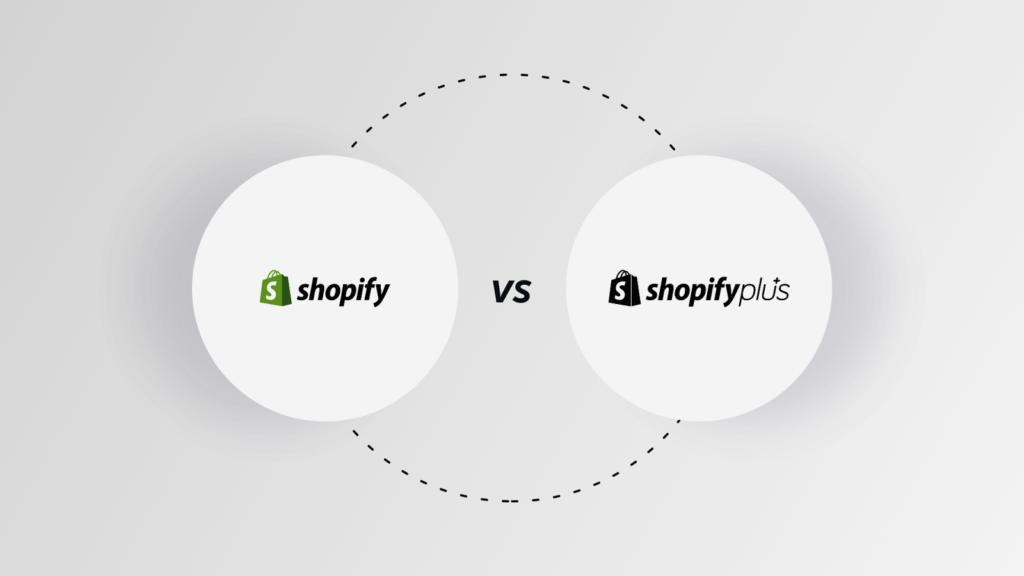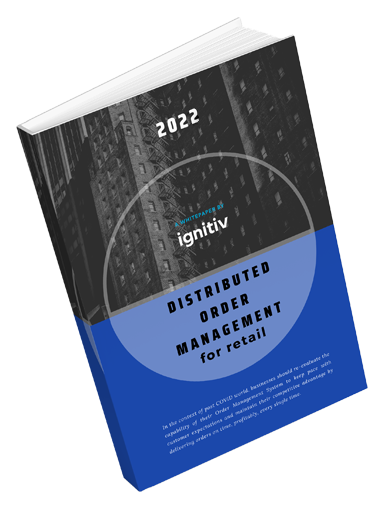Curious about setting up your online store? Want to join the 5.7 trillion e-commerce industry as a digital seller? We are heading towards 2024, so this is surely the best time to start now than never.
E-commerce platforms enable businesses from small to large scale to reach customers globally, breaking down geographical barriers. It is essential for advancements and expansion in a highly interconnected world. The upcoming landscape of E-Commerce is hugely unexplored.
We are representing a detailed guide that will help you explore the E-Commerce platform from a 2024 standpoint and offer the clarity you need to see whether Shopify or WooCommerce is the best platform to build your online store.
Let’s get started with the fundamental difference between these popular E-Commerce platforms. WooCommerce is a WordPress plugin that lets you create any sort of online store, whereas Shopify is an all-in-one SaaS (Software-as-service) E-Commerce platform for digital product selling.
eCommerce Platform: A Quick Comparison Overview
Please go through this table for the readers who are in a hurry and want a quick overview of Shopify and WooCommerce. You’ll get a brief idea about the key highlights of E-commerce platforms.
| Parameter | WooCommerce | Shopify | Winner |
|---|---|---|---|
| Flexibility | Technical expertise may be required. Not Beginner-friendly | Centralized dashboard, best for beginner, drag-and-drop editor tool | Shopify |
| Search Engine Optimization | A wide range of SEO plugins and extensions with advanced capabilities | Offers decent page loading speed due to built-in SEO tools. Manage meta titles and descriptions easily with Shopify. | WooCommerce |
| Scalability | Scalable online store until the hosting infrastructure allows. Technical assistance needed. | Easily scalable to large number of stores based on the offering plans from Shopify | Tie |
| Security | PCI-DSS Compliance and SSL certificates unavailability. Potential security loopholes due to open source | Trusted by Big organization. Utilizes built-in SSL and PCI-DSS compliance | Shopify |
| Cost | Free to install. Pay for domain & hosting fees only | Price starts at $29-$299 monthly | WooCommerce |
To know more about other popular enterprise e-commerce platforms, click here.
Shopify: Take a Glance
What Can You Expect from Shopify?
Founded in 2006, Shopify is a one-stop E-commerce solution that has revolutionized selling products online globally.
- Sign up at Shopify & your store is ready to launch (Get the work done, No-Nonsense)
- Join the worldwide club of 6.3 million trustable digital sellers and sell products online
- Manage inventory, payments, integrated hosting, and store design tools- all in one place
- Shopify will take care of complex tech-you can focus on business selling strategies
WooCommerce: A Renowned WordPress Warrior

What Can You Expect from WooCommerce?
A free and open-source E-commerce plugin built for WordPress that lets you create a fully functional online store.
- 6.5 million e-commerce stores have already been registered. Your store is next!
- The World’s most popular E-Commerce platform (Yes, more than Shopify)
- Get complete control of your online store. Do what you want!
- You have a minimum budget, but you won’t mind working on everything on your own.
Statistics That Matter for Your E-Commerce Success
Take a quick look to the market share of top three popular e-commerce platforms as of Jan 2024:
| E-Commerce Platform | Websites Registered | Market Share |
|---|---|---|
| 1. Shopify | 4,628,418 | 17.61% |
| 2. WooCommerce | 3,304,718 | 12.57% |
Source: eCommerce technologies Web Usage Distribution on the Entire Internet (builtwith.com)
Features Comparison Between Shopify Vs WooCommerce
We will delve into the features comparison between these two most popular e-commerce platforms WooCommerce vs Shopify. They both are used to create online stores with world-class and user-friendly user experiences.
| Shopify | WooCommerce |
|---|---|
| Make online store as you want & Scale accordingly | Thousands of Plugins and Extensions |
| Faster payment gateways for hassle-free transactions | Free & open source |
| Automatic fraud analysis & Inventory management | No coding required |
| Unlimited products & file storage | Product & catalog management |
| Manual order creation | Analytics & reports |
| 24/7 customer assistance | Payment & checkouts |
| Multiple language support | Highly Flexible |
| 14 Days free trial | Free themes & extensions |
Winner: It’s a tie. Both have impressive features.
Search Engine Optimization: Stay Trending in Google Ranking Page
Being visible among top-search rankings is still a tough nut to crack if your SEO strategies don’t fall within the market requirement. Shopify lets you free from this extra burden with its built-in SEO plugin. The usual customer bias primarily revolves around Shopify’s ability to load web pages faster and take your online store to a new level of Google rankings. Shopify has its own standalone hosted e-commerce platform.
Contrarily, WooCommerce slightly differs from Shopify as it is a WordPress plugin. It is closely integrated with WordPress where you can modify the content body, manage meta descriptions, and other relevant on-page elements with a few clicks. WooCommerce offers popular plugins like Yoast SEO, The SEO Framework, SEO Press, etc. WooCommerce permits you to explore an array of SEO extensions & plugins at much cheaper rates.
Winner: WooCommerce
Scalability: Sell Products as Much as Possible
Scalability plays a significant role while handling businesses of diverse magnitude, including small to large enterprises. A large business ecosystem requires the adaptability to manage high customer traffic with a bigger sales volume. Shopify performs very well on this front.
WooCommerce has finite capability on scaling parameters. Although it also performs well with limited store scaling capabilities.
Winner: Shopify wins over scalability parameter by a big margin compared to WooCommerce.
Customization (Themes & Plugins): Build Bespoke Online Store for Your Customers
Once you set up a new Shopify account, you will gain instant access to more than 70+ free themes. Paid themes are also available to the users. Buy it from the Shopify store and start your online store on the go.
Store owners with a no-nonsense approach can use Shopify ready-to-use themes and get your store live as soon as possible. Moreover, Shopify allows you to launch multiple online stores with the same theme. Shopify focuses on empowering the seller to make fully customized stores.
On the contrary, WooCommerce allows you to implement customized themes for your store using a code-free real-time editor. Also, you can use the WooCommerce theme builder that allows you to design your customized store shop and build pop-ups simply using drag–and–drop feature. If you are more into picking nitty-gritty details and want to explore uniquely curated stores, WooCommerce themes are designed for you.
Winner: WooCommerce
Payment Gateways: Safeguarding Your Customer Strengthen Mutual Trust
The end goal of the entire e-commerce ecosystem is the digital exchange of retail products between customer and seller as seamlessly as possible. Payment gateways are the fundamental block between buyer and seller for a trustworthy exchange.
When talking about WooCommerce for its payment gateways, it uses its payment service powered by Stripe. Use additional plugins for popular payment gateways like PayPal and Stripe. Also, use 3rd-party plugins for small payment gateways for small-scale providers.
Shopify, on the contrary, harnesses its own Shopify payment service for safer and faster transactions. You will be charged between 0-5%-2% for using other payment gateways. Pay with cash or check with zero transaction fees on Shopify.
Winner: WooCommerce
Pricing: Get the Maximum ROI at Best Price
Budget is a decisive factor for every digital seller. Shopify is known for its costly plans for premium service category users. Hence, they charge more than their industry equivalents. For instance, Shopify’s latest monthly plans will cost you from $29/m to $299/m with additional taxes. But the best thing about Shopify is that their plans are value for money, and you’ll get exactly what you pay for.
However, not every digital seller has an optimum budget at the initial stage. Those should go for WooCommerce as it is technically free to start with. Pay for services like hosting, domain registration, paid templates, themes, and plugins. It may vary between $4-$480/per month.
Flexibility: Ease of Use
No matter how outstanding features an e-commerce platform offers, the flexibility to use those features at a diverse scale allows sellers to expand this business to a new horizon. In short, ease of use of those features sets the e-commerce platform at a new pinnacle of productivity.
Shopify is well-known for its user-friendly interface. Customize your online store simply with a drag-and-drop tool and create a memorable customer experience. Leave the software management, updates installation, routine backups, and other technical responsibilities to Shopify. You can focus solely on your sales strategies.
On the other hand, if you are tech-savvy, managing an online store with WooCommerce will be easy for you. Just be ready to play the responsibility of a web designer. The time–consuming tasks like routine software updates, hosting, and security updates would be a delightful experience for you.
Winner: Shopify
Get Flexibility and Scalability with Shopify Plus
Customer Support: Rewarding Customers Turns into Loyalty
Customer support is an inevitable part of any product or service we use. No matter how well everything goes, there is something that can create a mess out of nowhere. The Good customer assistance can act as a helping hand when dealing with a fully functional E-commerce platform.
Coming to Shopify, it has always had an advantage over WooCommerce. The company provides 24/7 customer support for its users. Connect instantly with the Shopify customer care team through email, phone, and live chat and get your queries resolved. Get expert support on comprehensive documentation, tutorials, how-to guides, and much more.
WooCommerce offers limited customer support options, including documentation, tutorials, user guides, etc. It does not have a dedicated support team. Although it is a self-hosted platform, a limited scope of customer support can be entertained.
Winner: Shopify
Security: Safeguard Your Customer from Cyber-Attacks
Security plays a significant role in flawless digital commerce between buyer and seller. Prioritizing security eliminates the potential risk of online store security threats. When customer trust is involved with your brand, never compromise with the security loopholes.
Shopify is the trusted name whenever the data security of a customer is involved. The built-in SSL certificate safeguards your E-Commerce store and saves you from potential cyber-attacks. Shopify also provides PCI-DSS compliance to deliver high-end security to its customers. Stay safe with Shopify for all your payment gateways.
WooCommerce is secured by the trust of WordPress. Although it is an open-source platform, a large open-source community helps to secure the platform from potential cyber-attacks. Always make sure your online store is PCI-DSS compliant. It helps protect the sensitive credit card information of customers.
Winner: Shopify
Integration & Extensions: More the Better
We never miss the chance of extra benefits. Add-on always helps in extending the existing software capabilities. The same goes for the Shopify App Store, where you can add additional third-party tools for your online store. Typically, the Shopify apps have four categories: sales channels, store design, finding products, and marketing and conversion. Choose your favorite categories and customize your Shopify store to reach a larger audience.
Shopify implements Add-ons very well through its Shopify App Store. Please choose your favorite 3rd party app from your Shopify store and integrate it with your online store to extend its productivity.
WooCommerce offers a WordPress plugin that can be used to boost the performance of your E-Commerce store. There are various types of add-on plugins available for payment gateways, E-Commerce SEO, social app integration, and much more.
Winner: WooCommerce
Why Choose Shopify vs WooCommerce
| Key features | WooCommerce | Shopify |
|---|---|---|
| Included hosting | No | Yes |
| Included SSL certificate | No | Yes |
| Subdomain included | No | Yes |
| PCI-DSS compliance | No | Yes |
| Multiple languages supported | Yes | Yes |
| Open source | Yes | No |
| Customizable website | Yes | Yes |
| Available app store | Yes | Yes |
| Mobile app for store owners | Yes | Yes |
| Detailed reporting | Yes | Yes |
| Built-in blog CMS | Yes | Yes |
| Unlimited products | Yes | Yes |
| Website themes | Yes | Yes |
| Multiple currencies | Yes | Yes |
| POS system | Yes | Yes |
| International payment processors | No | Yes |
| Built-in fraud protection | No | Yes |
| Unlimited storage | No | Yes |
| 24/7 customer support | No | 24/7 in English |
The Final Verdict: Shopify vs WooCommerce, Which One is Right for You?
Finally, after juggling the positives and negatives of Shopify and WooCommerce e-commerce platforms, the crown of the overall winner goes to Shopify for all the good reasons.
Although judging on the parameter of flexibility and features, WooCommerce also performed well, but simplicity of Shopify steals the show. Shopify made it possible to unite a diverse background of online entrepreneurs to connect with technologies despite their technical understanding. The major highlights of Shopify are built-in sales features, a drag-and-drop editor tool, a 14-day free trial, and higher scalability.
WooCommerce is straightforwardly not for newbies because of prior technical understating requirements for hosting plans, plugin installation domain registrations, etc.
Shopify means convenience, whereas WooCommerce means flexibility. Both have their pros and cons. It may depend on your demand, technical skills, and budget. We hope you will choose your favorite one based on your requirements. Do you want to explore more about the Shopify services? Ignitiv can be a brilliant partner for your eCommerce customer journey with its world-class CX Solutions. Contact our technical experts now!








